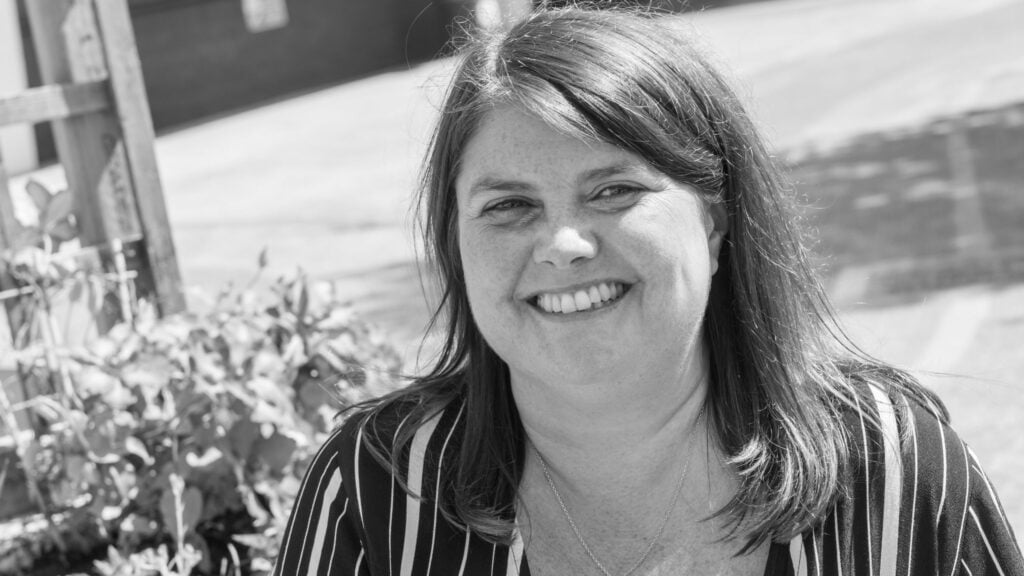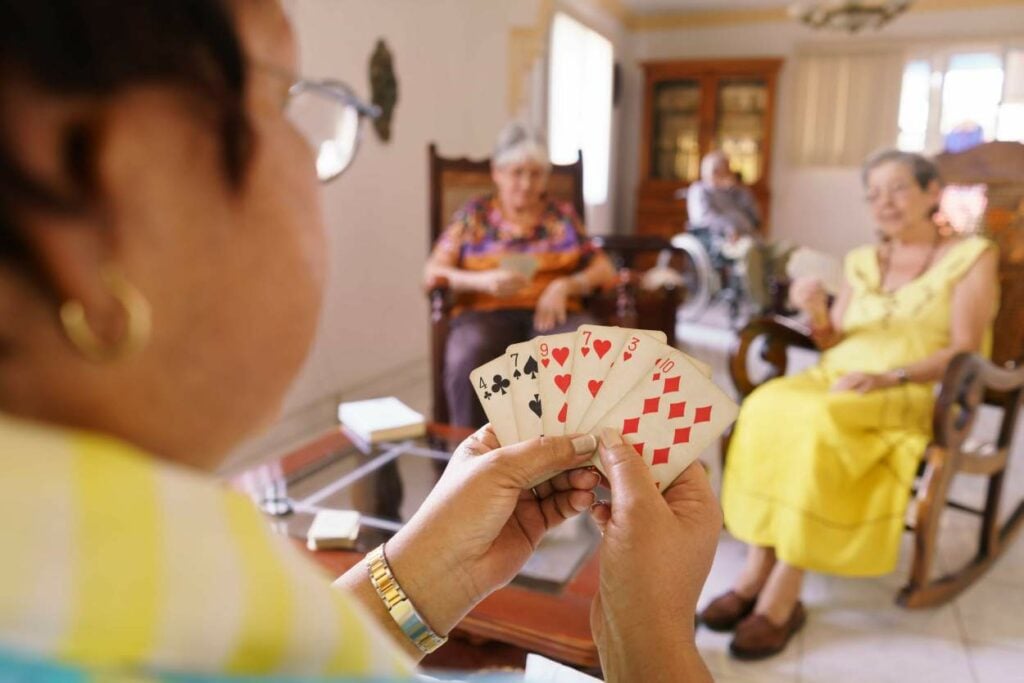Community Spirit: Exploring Dementia Care and Support in Rural Areas

We talked to Anthea Innes about the challenges of providing care in remote places and the importance of community spirit within that.

Anthea Innes was appointed as the University of Salford’s first Professor of Dementia in 2016 and is the Director of the Salford Institute for Dementia.
What first interested you about the area of rural dementia care?
I got a Lloyds TSB Royal Society of Edinburgh personal fellowship to study rurality and older people with dementia, and I was interested in people’s experiences of living in rural areas and the challenges of service providers to provide care and support in these challenging geographical landscapes.
I was also interested in the experiences of family members and how they supported an individual with dementia in this context. Also, in the experiences of the individual with dementia themselves in these rural areas – where did they get the support to enable them to live as well as they could?
How do people access support in rural areas if they are living with dementia, and what kinds are there?
That was one of the questions I had when I was starting out on this research, and I guess it depends on the types of community you live in. Some communities are very supportive of people living with dementia, especially if the person has grown up there and are embedded within that community.
However, lots of people choose to retire to rural locations and then they are seen as ‘incomers’. They don’t necessarily have the same established and extensive social networks so if they develop dementia or any other condition their experiences can be quite different.
Another issue is that there is still stigma attached to dementia in many rural areas. When I first started looking at rural communities it was the case that you were really left a bit to yourself if you got a dementia diagnosis – and indeed GPs were reluctant to give them – because there weren’t really any local post-diagnostic services available.
Island communities are also interesting – one of the rurality studies I was part of looked at some of the Scottish islands and Gaelic-speaking communities and they were actually very supportive generally because island communities have already built up their own support infrastructure that some of the more remote mainland communities might not have.
"If you have community spirit and value people, then it doesn’t really matter whether support is in an urban or rural area. It goes back to whether people value being part of that community and want to support people within it."
Anthea Innes
People on islands are used to rallying around because of their geography. If you live on Shetland, for example, it can take you a long time to get to the mainland and the main hospital in Aberdeen.
So a couple of projects we did in Shetland did demonstrate really strong communities – but equally lots of stigmas when people didn’t know much about the condition. However, equally, when island communities become more aware of it, they become very supportive.
More recently, I secured funding from Age UK for a doctoral project in Dorset, setting up tech groups for men living in rural communities – because most of the initiatives and support services seem to cater more for women and men were not attending the groups.
The groups were designed for men living with dementia to get together and do things they enjoy using technology such as the Wii, Nintendo and iPads.
And that varied, for example, one of the rural communities was quite working class and a lot of things they were interested in using the tech for was around sports; another rural community was much more middle class, and they used the tech differently.
However, the technology allowed people to tailor the kind of intervention to their own interests and this initiative was so popular that the community secured funding to keep the group going once the research finished.
"The beauty of online learning is that you learn a lot from the cohort of students you’re studying with because they’re not just from the same services you might have already worked with."
Anthea Innes
What stages of dementia does your rural research centre on?
I don’t really subscribe to stage theories of dementia although stages are useful for clinicians to try and manage people. I think it’s much more about trying to understand where people are at and the support that they need, rather than to classify them as ‘this stage’ so we need to do this – or ‘that stage’ so we don’t need to do this.
I don’t find the way that stages are used to understand people and decide on the support packages offered to them to be that helpful.
There are obviously people who are at the end of life who do need special care, but when someone is at the end of life, it’s often a co-morbidity along with dementia that makes it end of life, rather than the dementia itself. So the need to have end of life care isn’t necessarily the same as having advanced dementia.
My starting point is always the person – what their needs are, what their interests are and it doesn’t really matter in the end what “stage” of dementia they are at. The key thing is to look at the individual and say, “what can we do to improve that person’s life?”
Are there lessons that urban areas could learn from rural areas in community dementia support?
I am reluctant to generalise in that way. If you have community spirit and sense of valuing people, then it doesn’t really matter whether support is in an urban or a rural area. It goes back to whether people take pride in their community and whether they value being part of that community and want to support people within it.
Follow the Salford Institute for Dementia on Twitter, HERE.
Urban areas have many more resources, cultural experiences and health centres, but equally rural communities can have very vibrant church communities and sports activities, so I think it varies.
The key thing that enables people to be supported wherever they are is people being willing to support them, and services – whatever they are – being willing to make themselves accessible to all members of their communities.
I think the dementia friendly community initiatives are key examples of people really trying to work out how they can make their particular community accessible to people with dementia, which means they can still live their lives within it and not get ostracised.
How can technology help improve rural support services?
Healthcare support can be a challenge in rural communities because you have generalist staff who are often very fractional; the same member of staff will have a fraction of their post allocated for children’s services, a fraction for older people, a fraction for mental health and so on. So you have one member of staff having to do an awful lot – and having to have a lot of knowledge.
Online study can be one way in which technology can help, and there are courses in dementia now – at Stirling University, I helped set up the first worldwide Masters programme in dementia studies – which still runs today. So more and more places are offering things like this now – at Salford University, we also have an MSc in Dementia and Environment.
So there are lots of opportunities for people to study from a distance. Most of the online programmes are flexible with different exit points so you can finish after a year, or carry on for two years and get a diploma or continue to a full MSc. There are also online modules so that people who haven’t already got a degree can study.

And of course, there are lots of online resources available to staff. In the Republic of Ireland, the Elevator Project has free modules for all sorts of sectors.
There is one, for example, for people in the finance and banking industry – because people with dementia will still want to use these services to draw their pension or get money out.
Often people with dementia might keep going back for their money, forgetting that they have already been in and, of course, financial power of attorney is one of the issues people have to address.
So you don’t necessarily need to be one of the workers you’d expect to be working with people with dementia, such as in the health and social care sector, to use these and benefit from them.
Online, people can learn from initiatives at different ends of the country, or in another country with varying contexts of policy, directives and support system for initiatives. People from entirely different areas of the country or world can come together to learn and explore what is possible.
That’s the beauty of online learning – you learn a lot from the cohort of students you’re studying with because they’re not just from the same services you might have already worked with.
This interview was part of a series brought to you by Elder, the company who can take care of all your loved one’s live-in care needs. Whether you are looking for live-in care in London or require assistance in another part of the country, Elder can help.
Read our latest interviews
Browse our latest interviews, and research on elderly living, from leading national experts.